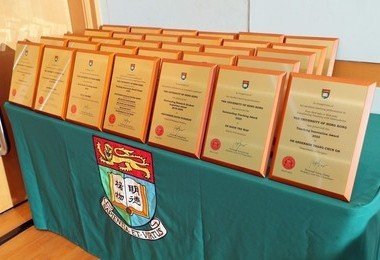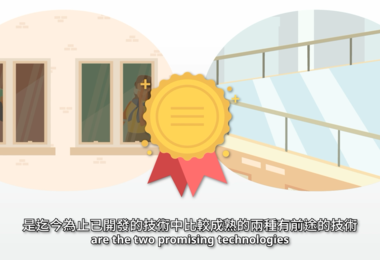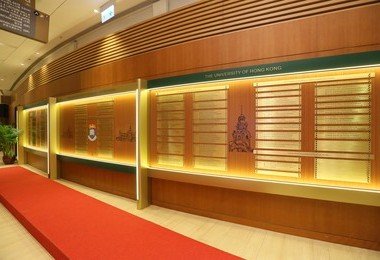KE Spotlight
Filter
-

Faculty Knowledge Exchange Awards 2021
The annual Faculty Knowledge Exchange (KE) Awards recognise each Faculty’s outstanding KE accomplishment that has made demonstrable economic, social or cultural impacts to benefit the community, business/industry, or partner organisations. Results of the 2021 Faculty KE Awards are now available.
Read More -

HKU Faculty of Education launches the “Knowledge Exchange Video Series (Preschool Series)” to share practical parenting tips
Preschool children between the ages of three and six develop rapidly in language, emotional and social aspects, but at the same time, they encounter varying degrees of difficulties and challenges. When children have learning, behavioural, emotional or social developmental problems, parents often feel helpless. In view of this, HKU Faculty of Education, supported by the HKU Knowledge Exchange (KE) Funding, has launched a series of KE videos to share practical tips and skills of parenting with the public, as well as to help parents understand the needs of their children's growth and establish a good parent-child relationship in a simple and interesting way. A total of six videos (in Chinese only) are disseminated through the Faculty’s YouTube Channel.
Read More -

HKU Engineering develops energy-efficient building technologies to reduce solar heat gain and energy consumption
Among the various energy-efficient building technologies that have been developed under the leadership of Professor Christopher Chao (Dean of Engineering and Chair Professor of Mechanical Engineering at HKU), passive radiative cooler and smart window are the two innovative and promising technologies, which are ripe for industries. Passive radiative cooler is a wall panel for building façade to provide cooling effect for indoor environments by radiative cooling without additional energy input. Thermochromic smart window blocks solar radiation at high temperature or allow it in during cold weather by regulating its properties to maintain indoor thermal comfort. Installation of these two technologies reduces solar heat gain and heating, ventilation and air conditioning (HVAC) system for energy consumption in building. More importantly, they require no electricity and are eco-friendly.
Read More -

KE Excellence Award, HKU Innovator Award and HKU Young Innovator Award
The university-level KE Excellence Award was introduced in 2015-16 to recognise the significant impact that our academic staff had made to benefit society. The KE Excellence Award 2020 was awarded to Dr Caroline Dingle, Dr David Baker, Dr Timothy Bonebrake, and Professor David Dudgeon of the Faculty of Science.
The new HKU Innovator Award and the HKU Young Innovator Award have been established to recognise outstanding Faculty members whose innovations demonstrate exceptionally high potential impact (legacy or projected legacy) with transformative results to foster development. The new HKU Innovator Award and the HKU Young Innovator Award were awarded to Professor Chuyang Tang and Dr Ka Wai Kwok of the Faculty of Engineering respectively.
Read More -

HKU Engineering explores an innovative approach of using AI to reduce energy consumption in chiller plant optimization
The project led by Professor Christopher Chao, Dean of Engineering and Chair Professor of Mechanical Engineering at The University of Hong Kong (HKU), explored an innovative approach to optimize the performance of chiller plant in heating, ventilation and air conditioning (HVAC) system for energy consumption reduction. According to the Hong Kong Energy End-use Data 2020 report published by Electrical and Mechanical Services Department (EMSD), space conditioning accounted for the largest percentage of 18% and 32% in total energy consumption and electricity consumption by end-use, respectively, in 2018. The energy usage related to HVAC system raised rapidly by approximately 15% by 2018 from 2008. To improve the performance of chiller plants, a predictive operational control strategy was developed for chiller plants by employing artificial intelligence technology and big data analysis without any additional equipment installation. Artificial neural network (ANN) was employed to predict the future trend, while particle swarm optimization (PSO) was applied to search for the optimized setpoints for the chiller plants. The implementation of artificial intelligence (AI) in chiller plant can enhance overall energy efficiency, reduce energy usage and improve maintenance practice of the HVAC system, as well as mitigating carbon emission by HVAC system.
Read More -
Faculty Knowledge Exchange Awards 2020
The annual Faculty Knowledge Exchange (KE) Awards recognise each Faculty’s outstanding KE accomplishment that has made demonstrable economic, social or cultural impacts to benefit the community, business/industry, or partner organisations. Results of the 2020 Faculty KE Awards are now available.
Read More -

HKU Faculty of Dentistry provides dental service to non-ethnic Chinese
"Gateway to Dental Health" was launched by the HKU Faculty of Dentistry in 2017 and has been working hand in hand with NGOs to provide free dental outreach service to Non-Ethnic Chinese (NEC). The Project was initiated by Dr Prasanna Neelakantan, Clinical Assistant Professor in Endodontics of the Faculty, with the objective to improve oral health condition of local NEC. The project team engages the NEC community by providing dental services and oral health education and in 2018 and 2019, seven dental health fairs were organised. This year, despite the postponement of our outreach dental services due to the pandemic, the project team will continue to provide oral care support to the NEC community. Together with the India Association Hong Kong, Pakistan Association of Hong Kong and Health in Action, a webinar will be held to share oral health tips, information on dental services and to respond to self-care questions.
Read More

